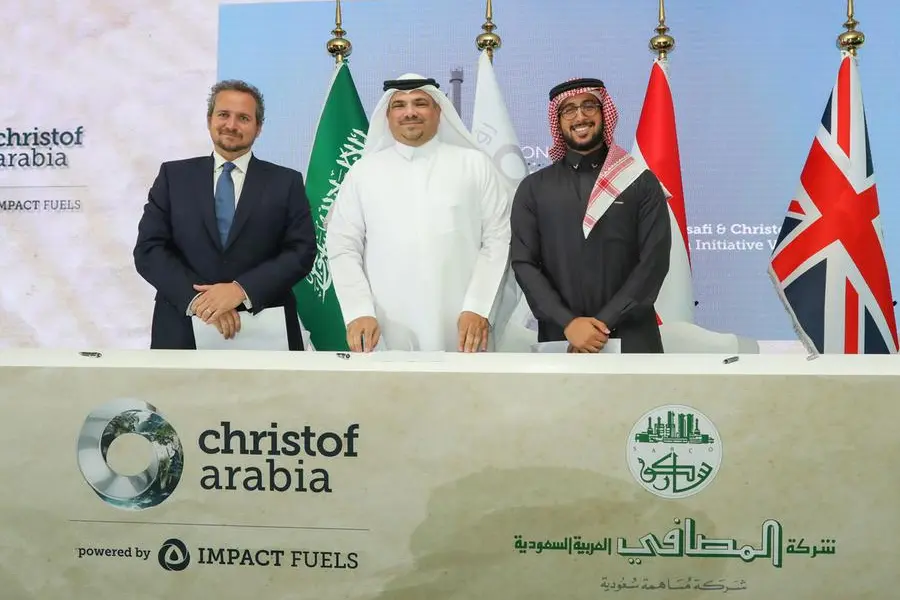PHOTO
Riyadh - Saudi Arabian Refineries Company (SARCO), and UK-based Christof Global Impact signed two non-binding memoranda of understanding (MoUs) to develop renewable energy projects.
The first project is to study an investment partnership to build a refinery producing the ‘biodiesel’ biofuel carbon, which is negative fuel derived from algae through “carbon negative algae oil - sustainable fuel platform” with an initial investment of up to SR1 billion for the first phase.
The second project, aims to study the investment in the technology of slop oil to convert waste oil wells, oil from shipping ships, waste of fuel tanks and petroleum materials into low carbon raw materials to reduce carbon emissions with an estimated total cost of SR130 million for the first phase.
SARCO Chairman of the Board, Eng. Aiad Mohammad Mushaikh pointed out that, "The new direction of SARCO focuses on developing its business and being one of the leading local companies in the market, as part of the National Renewable Energy Program and the strategic initiative.”
Mushaikh added, “It also falls in line with the Saudi Vision 2030 aiming to raise the Kingdom's share of renewable energy production to the maximum level possible, achieve a balance in the mix of local energy sources, and meet the Kingdom's obligations to reduce carbon dioxide emissions.”
These projects are subject to the approval of the Ministry of Energy and to the completion of technical and financial studies, according to Mushaikh.
From his side, Marwan Al Amoudi, CEO of Christof Arabia, a subsidiary of Christof Global impact said that the new cooperation with SARCO comes to promote sustainability, preserving the environment and natural resources in addition to create jobs for Saudi youth.
Meanwhile, Oliver Christof - CEO of Christof Global Impact added, “We hope to reduce carbon emissions and achieve net zero levels by 2060 after signing these memorandums.
He noted that, "Through our partnership with SARCO, one of our goals is to contribute to reducing global methane emissions by 30% as part of the global methane pledge by 2030, along with planting 10 billion trees and restoring 40 million square meters of land over the next few decades. All of these goals fall under the primary objectives of the Saudi Vision 2030."
The Kingdom has announced earlier a broad range of plans for renewable energy and its intention to launch a national program for a circular economy to reflect its awareness of the critical role that carbon absorption through nature plays.
-Ends-




















